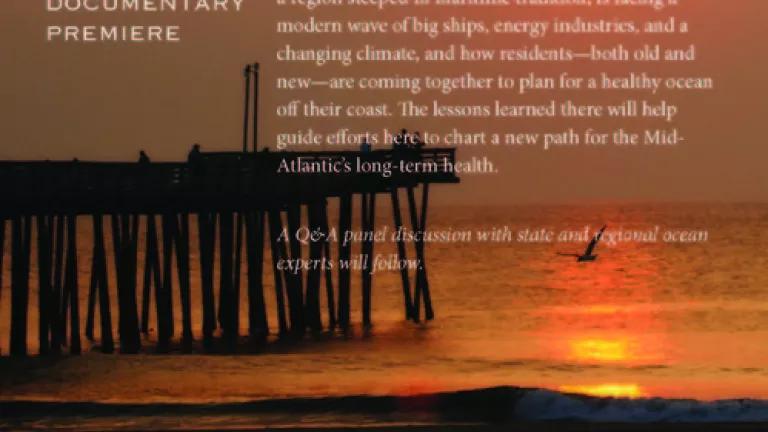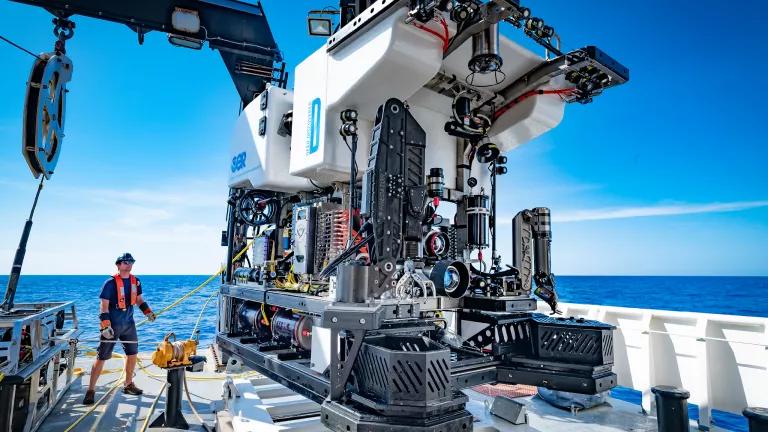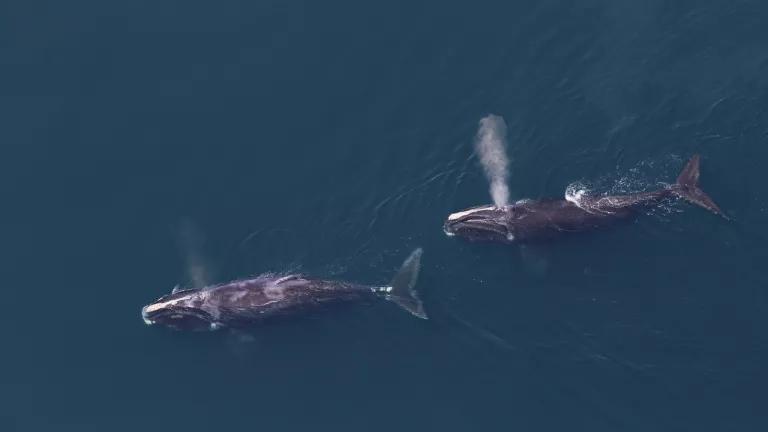
It’s been a long winter and yesterday Virginia Beach was more blustery and cold than the usual warm weather we expect – especially on the eve of the first day of spring. Hardly an enticing night for Virginians to travel out to hear about ocean efforts happening in New England. But the rain and wind didn’t stop residents from coming to the Virginia Aquarium and Marine Science Center for an evening premiere of the Green Fire documentary “Ocean Frontiers II: A New England Story for Sustaining the Sea”. And I think that’s because the story that’s told is about much more than New England.
“Ocean Frontiers II” stresses how we all must work together to address “a modern wave” of larger ships, new offshore energy industries, and climate change. With similar challenges occurring offshore Virginia, Virginians want to know how to respond and the film presents a new way of managing our ocean’s future use and protection through coordinated ocean planning. Coordinated ocean planning brings those of us who use and love the ocean together to help develop a plan for ensuring the resource’s health for our children, grandchildren, and generations to come.
A panel discussion with state and regional ocean experts followed the film to discuss the ocean planning work that is happening in Virginia, and throughout the Mid-Atlantic. One speaker – also a star in the film – was Joe Atangan, a physical scientist with the U.S. Navy, Fleet Forces Command and a member of the Mid-Atlantic Regional Planning Body, the group tasked with developing the region’s ocean plan. He noted that, historically, there has been a lack of coordination between the federal agencies that are involved in the ocean – from shipping to offshore energy to military training – but “we’re here to change that.” A self-described recent convert to the process, he said that it’s critical we communicate and coordinate better – between federal and state agencies and with input from fishermen, environmental organizations, shipping companies, coastal tourism businesses, and members of the public – because we’re “only going to be able to protect our ocean if we all work together.”
The Mid-Atlantic Regional Planning Body is asking for feedback on its draft vision statement, principles, goals, objectives and an initial geographic focus for this region’s efforts to develop a coordinated ocean plan. We need to encourage this planning and help identify areas of the sea that are appropriate for different uses and those that need protection.
I urge you to make sure your voice is heard in this process and attend Virginia’s listening sessions on the first stage of this work tomorrow, March 20, at the Sheraton Norfolk Waterside Hotel at 1:30–4:00 p.m. or at 5:00–7:30 p.m. Please let the Regional Planning Body know that you want them to develop an ocean plan that prioritizes a healthy Mid-Atlantic ocean and coasts so that they can continue to provide the food, jobs and recreation we want and need. You can also email comments to MidAtlanticRPB@boem.gov until April 15.




